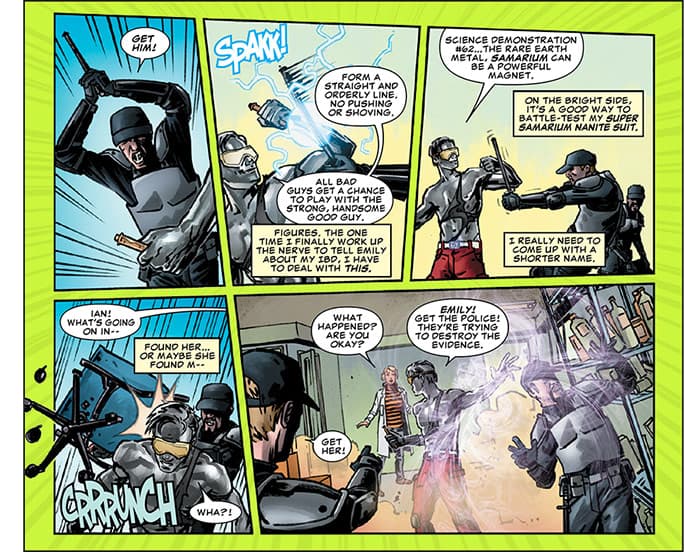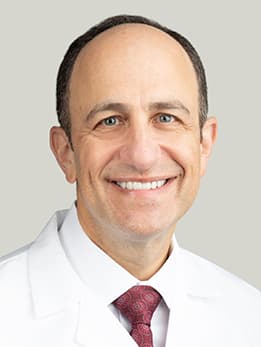Superhero's origin story just happens to include IBD

"It's not my feelings I want to share, Doc. I was hoping to tell her my secret."
"You're going to tell her about your super-nanite armor?"
"Not that secret, Doc. I want to tell her that I have IBD."
People with chronic diseases like inflammatory bowel disease (IBD) often talk about having a secret identity. They hide their condition from others out of embarrassment or not wanting to seem like a downer, and they may feel like they're just supposed to suck it up and deal with it. This might seem like the noble, heroic thing to do, but this attitude makes even a superhero with armored skin feel like his IBD is the weird secret he has to keep from a potential love interest.
David Rubin, MD, Section Chief of Gastroenterology, Hepatology and Nutrition at the University of Chicago Medicine, has spent his career treating patients with Crohn's disease and ulcerative colitis, collectively known as inflammatory bowel disease. He said the idea that patients with IBD are relegated to a life of abdominal pain and frequent trips to the bathroom is a misconception.
"We've made incredible progress. There are better treatments than ever before, and patients should have the expectation of being in remission when they have these conditions," he said. That's why he teamed up with Marvel to help create a new superhero to raise awareness about IBD, and spread the word that ordinary people can do extraordinary things in spite of, or perhaps because of, their hidden identity with the disease.
The project is a collaboration by Takeda Pharmaceuticals and the Crohn's and Colitis Foundation of America with Marvel Custom Solutions, a division that creates unique characters and storylines for marketing and raising awareness about various causes. Rubin and a panel of IBD experts, patients (many of them his own) and Marvel designers worked together to create Samarium, a superhero who just happens to have IBD.
Samarium is really a mild-mannered scientist named Ian, who, through the requisite lab accident, has a "super-powered suit of armor made from organic samarium nanites" (i.e. really thick skin). In the pilot issue of his comic, "IBD Unmasked," Samarium uses his armor to fend off an attack by a squad of nefarious commandos, but what he's really worried about is telling his work crush Emily that he has IBD. Does he get the girl? We'll save the spoilers. Rubin said the comic is meant to carry a message of empowerment. You don't have to be a superhero to deal with IBD-in fact, Samarium's superpower has nothing to do with it. Instead, it becomes part of an identity that gives him strength to keep going.
"Everyone has their origin story. What happened to you earlier in your life defines who you are, or what your motivations are for the person you're trying to be. To me that's a very powerful part of all this," he said.

You can read the first issue of IBD Unmasked and watch a behind-the-scenes video of its creation at IBDUnmasked.com. The site also has quizzes and educational materials for patients and their friends and family (aka "sidekicks"). There are plans for more episodes, and Takeda will donate $1 to the Crohn's and Colitis Foundation for every page view of its infographics and illustrations, up to $25,000. Rubin said that besides raising general awareness about IBD, he hopes the comic will help more patients understand that they don't have to suffer alone.
"I hate that we continue to propagate this myth that people diagnosed with IBD are going to be relegated to a life in the bathroom," he said. Instead, "for many patients that are diagnosed with a chronic disease when they're young, the disease can inspire them. They can decide that, because of this condition, I'm going to do great things."

David T. Rubin, MD
Dr. Rubin specializes in the treatment of digestive diseases. His expertise includes inflammatory bowel diseases (Crohn’s disease and ulcerative colitis) and high-risk cancer syndromes.
See Dr. Rubin's physician bio